Any time.
That’s the short answer to this question, you can have a protein shake any time of day.
There are a lot of myths surrounding protein shakes because many influential folks say they’re absolutely key to recovering, to building muscle, to improving your physique, and here’s the truth:
- Protein shakes are a really convenient, inexpensive, and tasty way to meet your protein needs. Protein is harder to ind and more expensive than carbs and fat, and protein shakes are absolutely fantastic supplements that are totally worth the money
- They’re not necessary. You can get protein from anywhere else if you don’t like protein shakes.
- You can have them any time of day and you won’t have any practical difference in your physique or performance…
- Possibly unless you’re training on an empty stomach.
We’ll get into that a little later.
Let’s talk a bit more about this idea that a protein shake is totally necessary after a workout or before a workout.
The Fabled Post Workout Anabolic Window
If you clicked on this article, you’re probably wondering about the idea that you need a protein shake right after you work out in order to get your muscles repairing themselves as quickly as possible.
It’s often called the post workout anabolic window: the notion that after exercise, your body will build more muscle or be more receptive to protein because the muscles have just been beaten up and broken down. That they’re screaming for nutrients and will respond to them more positively than usual.
One of the most influential studies on this post workout window was done by the famously muscular PhD Brad Schoenfeld.(1)
Nutrient timing revisited: is there a post-exercise anabolic window?
While it’s a complicated study it did note that 20 to 40 grams of protein before and after you exercise is useful for stimulating muscle protein synthesis.
Muscle protein synthesis (or MPS) is a process that produces protein to repair muscle, and while it’s only part of the muscle gain puzzle — you’ve still got to eat enough, get plenty of sleep and so on — but it’s important nonetheless.
There’s an important thing to note here, though: while 20 to 40 grams every 3 or so hours may be great for maximum muscle protein synthesis, he also noted,
If protein is delivered within particularly large mixed-meals (…) a case can be made for lengthening the interval to 5–6 hours.
In other words, it’s not a huge deal if you wait a few hours after you exercise to have your shake and more importantly, none of this says the protein you eat has to be in the form of a whey protein shake.
[Related: Our interview with Brad Schoenfeld on the 3 principles of hypertrophy]
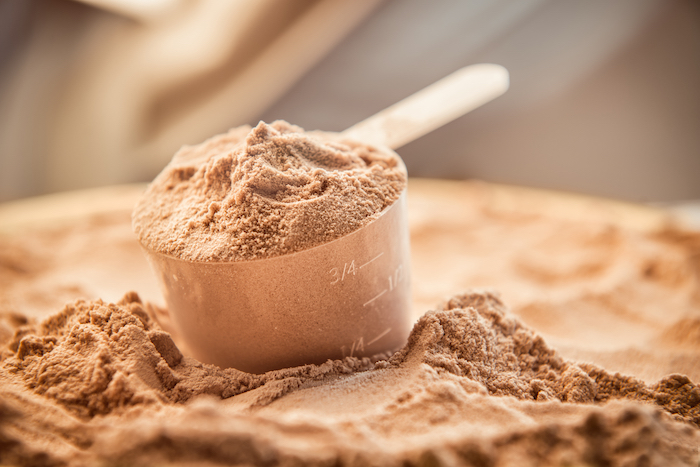
We should emphasize there’s not a ton of research in this area, but there are a couple of other studies worth looking at:
Pre- versus post-exercise protein intake has similar effects on muscular adaptations
Published in 2017, this study compared two groups of well trained men over 10 weeks of workouts: one group took a shake with 25 grams of protein right before exercising, the other took one right after exercising.(2) It found that “pre- and post-workout protein consumption had similar effects on all measures studied” and went on to say:
These findings refute the contention of a narrow post-exercise anabolic window to maximize the muscular response and instead lends support to the theory that the interval for protein intake may be as wide as several hours or perhaps more after a training bout depending on when the pre-workout meal was consumed.
Effect of protein-supplement timing on strength, power, and body-composition changes in resistance-trained men.
Another, published in the International Journal of the Society of Sports Nutrition, also looked at a group of well trained men lifting several times a week over ten weeks.(3) One group took a protein shake before going to sleep and after waking up, the other took a shake right before and after working out.
At the study’s end, it found no difference in their squat strength or their levels of muscle and fat.
Results indicate that the time of protein-supplement ingestion in resistance-trained athletes during a 10-wk training program does not provide any added benefit to strength, power, or body-composition changes.
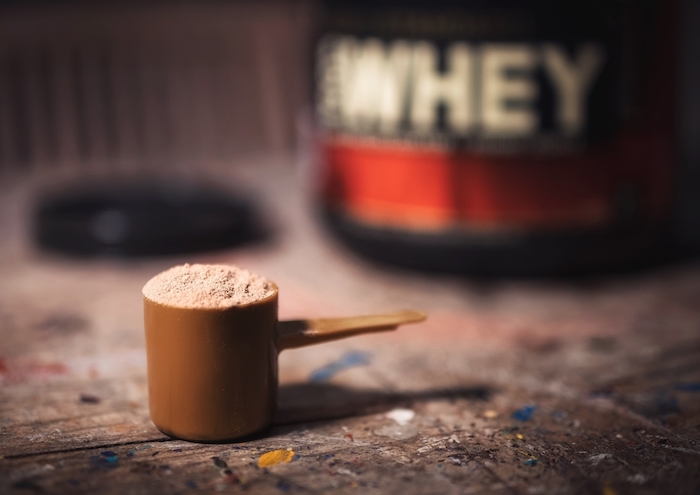
The effect of protein timing on muscle strength and hypertrophy: a meta-analysis.
Just in case you’re not convinced, we also want to draw your attention to a meta-analysis of twenty-three studies that Dr. Schoenfeld also worked on.(4) Once again, all this data showed no practical effect of having a protein shake at all, so long as your total calories and macros are in check.
These results refute the commonly held belief that the timing of protein intake in and around a training session is critical to muscular adaptations and indicate that consuming adequate protein in combination with resistance exercise is the key factor for maximizing muscle protein accretion.
[Related: How Much Protein Should I Be Eating, Anyway?]
That bears emphasis: how much you eat is much more important than when you eat it. In fact, plenty of research has found that even if you’re fasting every other day, you’ll lose or gain about as much weight as people who are eating all day every day, so long as the calories are the same.(5)
It does seem to be true that there’s a little increase in muscle protein synthesis after you exercise and that it increases further when you have some protein after you exercise.(6) But it isn’t estanlished that this spike makes a real difference to physique or performance over the long term.(1) Total calories and macros are king.
But there may be some exceptions.
[Related: Pre and Post Workout Nutrition: Your Ultimate Guide]
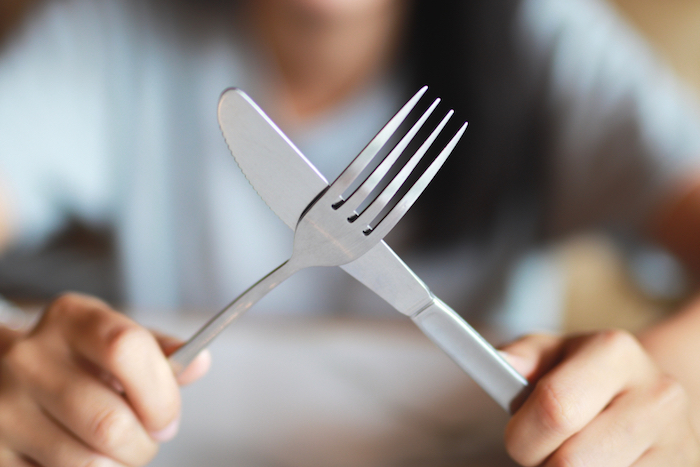
What If I’m Training On an Empty Stomach?
A possible exception may be in the case that you’re exercising on an empty stomach — if you’re not following that advice of getting in all your calories and macros throughout the day and instead deliberately avoiding food for extended periods of time. (Sometimes that’s called intermittent fasting. Others just call it skipping breakfast.)
If that’s the case, some research suggests taking some quality protein (like whey) before and after you exercise might be more useful at helping you build or retain muscle.(7)(8) This is because consuming these amino acids helps to stimulate muscle protein synthesis.
According to nutrition research site Examine.com’s breakdown of the science:
if your stomach is empty, it’s more beneficial for muscle protein synthesis to have a shake before you work out than to not have one at all.
And if you don’t have one before you work out, then it may be advantageous to take one right after you exercise than to keep waiting. Again, because of the MPS.
If you’re eating a few meals with enough protein throughout the day, this is probably not something you need to worry about. But if you’re training on empty, it may be better to get some protein in your body before or at least after you exercise.
[Related: The 7 Best Whey Protein Shakes on the Market]
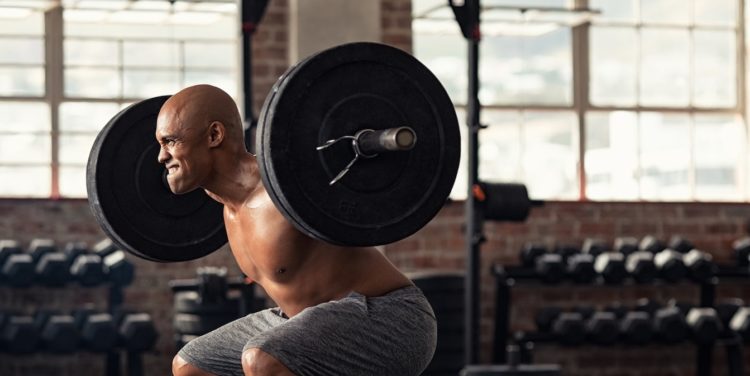
What If I’m Training Multiple Times Per Day?
The other potential caveat here is if you’re training more than once in a day. In this case, it might pay to ingest protein (like a whey shake, though not necessarily) between your workouts. This all makes sense given what we’ve learned so far: the body likes to have amino acids to stimulate muscle protein synthesis, if you’re doing exhaustive exercise and not eating enough of them, it could compromise recovery.
Now, the average person doesn’t even exercise twice a week, let alone twice a day, but if you fall into this category, some limited evidence has found that taking hydrolyzed whey may be better for recovery than other forms of whey.(9) Hydrolyzed whey is partly broken down by enzymes or acids, so it might absorb faster and get you amino acids a little more quickly.(10)
All of which is to say that if you just worked out and you’re about to go work out again, it might make sense to consume protein that digests as fast as possible — and a protein shake digests faster than steak of beans.
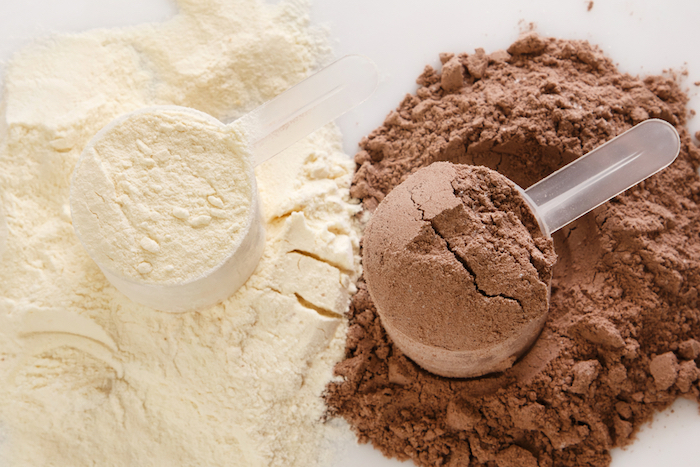
The Takeaway
Picking hydrolyzed over isolate is a tiny factor in the scheme of things. What’s most important is eating enough calories and macros throughout the day, and getting protein between workouts if you’re exercising a ton.
But to break things down even more simply, here are your takeaways when asking about the best time to drink a protein shake:
- Whey is cheap, tasty, and convenient. It’s a really handy thing to have in your diet.
- If you’re getting enough calories and protein and carbs throughout your day, whether you have a shake right before or right after you work out doesn’t seem to matter much.
- If you want to hedge your bets, there’s definitely no harm and probably some benefit if you have one before you exercise, especially if you’re exercising on an empty stomach. It seems to be better to have some amino acids in your system when you’re exercising than to not have them.
- Every time we say ‘whey protein’ or ‘protein shake’ here, you can just have protein from other sources. It doesn’t have to be whey. Whey is just cheap and easy, and many find it a bit easier to exercise with whey in their stomach than a bowl of spaghetti.
Frequently Asked Questions
When is the best time to drink a protein shake?
Evidence suggests that it doesn’t have a practical impact on muscle or performance. Taking a protein shake before, during, after a workout, or not taking one at all, produces the same results provided you’re consuming enough calories, protein, and carbohydrates throughout the day.
Should I have a protein shake before I exercise?
If you’re exercising on an empty stomach, it appears that having some protein beforehand may help to improve muscle retention and recovery. If, however, you’ve been eating plenty of calories and protein throughout the day, it doesn’t seem to be necessary to ingest protein right before a workout.
References
1. Aragon AA, et al. Nutrient timing revisited: is there a post-exercise anabolic window? J Int Soc Sports Nutr. 2013 Jan 29;10(1):5.
2. Schoenfeld BJ, et al. Pre- versus post-exercise protein intake has similar effects on muscular adaptations. PeerJ. 2017 Jan 3;5:e2825.
3. Hoffman JR, et al. Effect of protein-supplement timing on strength, power, and body-composition changes in resistance-trained men. Int J Sport Nutr Exerc Metab. 2009 Apr;19(2):172-85.
4. Schoenfeld BJ, et al. The effect of protein timing on muscle strength and hypertrophy: a meta-analysis. J Int Soc Sports Nutr. 2013 Dec 3;10(1):53.
5. Catenacci VA, et al. A randomized pilot study comparing zero-calorie alternate-day fasting to daily caloric restriction in adults with obesity. Obesity (Silver Spring). 2016 Sep;24(9):1874-83.
6. Biolo G, et al. An abundant supply of amino acids enhances the metabolic effect of exercise on muscle protein. Am J Physiol. 1997 Jul;273(1 Pt 1):E122-9.
7. Tipton KD, et al. Timing of amino acid-carbohydrate ingestion alters anabolic response of muscle to resistance exercise. Am J Physiol Endocrinol Metab. 2001 Aug;281(2):E197-206.
8. Moore DR, et al. Ingested protein dose response of muscle and albumin protein synthesis after resistance exercise in young men. Am J Clin Nutr. 2009 Jan;89(1):161-8.
9. Buckley JD, et al. Supplementation with a whey protein hydrolysate enhances recovery of muscle force-generating capacity following eccentric exercise. J Sci Med Sport. 2010 Jan;13(1):178-81.
10. Potier M, et al. Comparison of digestibility and quality of intact proteins with their respective hydrolysates. J AOAC Int. 2008 Jul-Aug;91(4):1002-5.